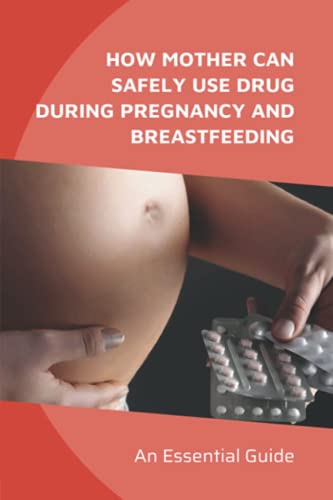Navigating the intricacies of handling mental health during breastfeeding can often seem akin to attempting to piece together a puzzle without sight. Striking a balance between the health of the mother and her child is a challenging task, particularly when factoring in the consideration of medications such as Lexapro.
However, our guide offers practical insights and considerations that can shed light on this delicate balance. From safety tips to managing potential side effects, we aim to provide a detailed resource for mothers seeking clarity on utilizing Lexapro while nurturing their little ones.
Join us as we unravel the nuances of mental health management in the domain of breastfeeding.
Key Takeaways
- Consult healthcare providers to assess risks and benefits.
- Monitor for side effects in both mother and baby.
- Maintain open communication for effective management.
- Consider dosage and interactions for maternal and infant well-being.
breastfeeding safe antidepressants Lexapro
As an affiliate, we earn on qualifying purchases.
As an affiliate, we earn on qualifying purchases.
Understanding Lexapro and Breastfeeding
Understanding how Lexapro interacts with breastfeeding is essential for mothers who are considering its use while nursing. When it comes to breastfeeding, the concern often revolves around the potential exposure of the infant to Lexapro through breast milk. While Lexapro can pass into breast milk, studies suggest that the levels of exposure in infants are typically low. However, the limited research on the risks associated with Lexapro and breastfeeding highlights the importance of a thorough evaluation.
Factors such as the dosage of Lexapro, the mother's milk production, and potential drug interactions play a significant role in determining the impact on the infant. Abrupt discontinuation of Lexapro can also pose risks for both the mother and the breastfeeding baby.
Consulting healthcare providers is vital in weighing the potential risks against the benefits of continuing Lexapro while breastfeeding. These professionals can provide tailored guidance based on individual circumstances, ensuring the well-being of both the mother and the infant is prioritized.
breastfeeding monitor for side effects
As an affiliate, we earn on qualifying purchases.
As an affiliate, we earn on qualifying purchases.
Safety Considerations for Breastfeeding on Lexapro

When considering breastfeeding while taking Lexapro, it's essential to prioritize safety by understanding the potential risks and consulting healthcare providers for personalized guidance. While limited research is available on the exact risks of Lexapro (escitalopram) to infants through breastfeeding, it's known that the medication can pass through breast milk, although exposure levels are typically low. The FDA has issued warnings about potential adverse effects in infants exposed to escitalopram, emphasizing the need for caution.
Before initiating Lexapro during breastfeeding, it's important to consult with healthcare providers to assess the individual situation. Factors such as dosage, milk production, and potential drug interactions must be carefully considered to make an informed decision about continuing Lexapro while breastfeeding. Healthcare providers can offer tailored advice based on these considerations to ensure the safety of both the mother and the infant. Remember, always seek professional guidance to navigate the complexities of breastfeeding while on Lexapro.

Frida Mom Breast Therapy Packs, Breast Pads, Cold & Hot Pack for Pain Relief, Breastfeeding Essentials for Lactation Support, Mastitis, Engorgement and Pump Aid, Postpartum Recovery, 2pk
BREASTFEEDING PAIN RELIEF & LACTATION SUPPORT: Frida Mom's specialized Breast Therapy Packs deliver targeted postpartum breast comfort for…
As an affiliate, we earn on qualifying purchases.
As an affiliate, we earn on qualifying purchases.
Managing Side Effects While Breastfeeding
To effectively manage potential side effects while breastfeeding on escitalopram (Lexapro), it's important to stay vigilant and communicate openly with healthcare providers. Escitalopram can elevate prolactin levels, leading to conditions like galactorrhea in breastfeeding mothers. Although delayed lactogenesis II may occur, it typically doesn't hinder breastfeeding.
Mothers using SSRIs like escitalopram might experience lower breastfeeding rates at 2 weeks postpartum. It's essential for mothers to watch for drug discontinuation symptoms in their breastfeeding infants. Open dialogue with healthcare providers is crucial to address any adverse effects on breastfeeding infants while on escitalopram.

How Mother Can Safely Use Drug During Pregnancy And Breastfeeding: An Essential Guide: What Medications Are Not Safe During Pregnancy
As an affiliate, we earn on qualifying purchases.
As an affiliate, we earn on qualifying purchases.
Consultation and Support for Breastfeeding Mothers
Seeking guidance from healthcare professionals is essential for breastfeeding mothers using Lexapro to navigate potential challenges and guarantee the well-being of both themselves and their infants. When considering medication use while breastfeeding, consult with healthcare providers who can offer valuable insights.
Here are some key points to keep in mind:
- Risk-Benefit Analysis: Healthcare professionals can assist in weighing the risks and benefits of using Lexapro during breastfeeding, helping you make informed decisions.
- Open Communication: Engage in open dialogue with healthcare providers to discuss any concerns or questions you may have regarding medication use and breastfeeding.
- Access to Resources: Online mental health resources can provide additional support and information for breastfeeding mothers on Lexapro, offering a wealth of knowledge at your fingertips.
- Specialist Consultation: Consultation with experts in perinatal psychiatry can offer tailored advice on managing mental health while breastfeeding, ensuring thorough care for both you and your baby.
Best Practices for Mental Health and Breastfeeding
Exploring the intersection of mental health care and breastfeeding presents unique considerations for mothers using Lexapro. When it comes to the use of antidepressants like Lexapro during breastfeeding, mothers must consult healthcare providers to assess any potential risks to their infants from medication exposure.
While research on the effects of Lexapro in breastfed infants is limited, exposure levels are generally low. Abruptly discontinuing Lexapro while breastfeeding can pose risks to both the mother and the infant, so it's important to carefully consider the decision.
Factors such as dosage, milk production, and potential drug interactions should be taken into account when determining whether to continue Lexapro while breastfeeding. Healthcare providers play an important role in helping mothers navigate these complex decisions, weighing the risks and benefits to make informed choices that support both maternal mental health and the well-being of their infants.
Frequently Asked Questions
Can I Breastfeed While on Lexapro?
We can breastfeed while on Lexapro, but consulting healthcare providers is essential. Levels of Lexapro in breast milk are usually low, yet risks to infants are not fully known. It's important to weigh benefits and risks with professionals.
How Do You Mentally Handle Breastfeeding?
Handling breastfeeding mentally involves creating a supportive environment, seeking help when needed, and prioritizing self-care. Relaxation techniques and connecting with experts can ease stress. Setting realistic expectations and being patient with ourselves is key.
When Should I Stop Breastfeeding for Mental Health?
When considering stopping breastfeeding for mental health reasons, consult a healthcare provider to evaluate risks and benefits. Factors like infant's age and health should guide decisions. Abruptly stopping can impact both mother and infant.
What Is the Safest Antidepressant While Breastfeeding?
We thought finding the safest antidepressant while breastfeeding would be a breeze, but it's quite the puzzle. Sertraline and paroxetine seem like the top picks, with minimal risks for our little ones.
Can I Take Lexapro While Breastfeeding and Following a Colic Soothing Diet?
Yes, you can take Lexapro while following a breastfeeding diet for colic relief. It’s important to consult with your doctor first, but maintaining a healthy diet can help soothe your baby’s colic symptoms while ensuring you’re getting the necessary nutrients.
Conclusion
In our journey to prioritize mental health while nurturing our little ones, we must delicately balance the scales of self-care and maternal responsibility.
Seeking guidance from healthcare professionals can illuminate the path towards well-being for both mother and child.
Let's navigate this intricate dance with grace and compassion, knowing that we aren't alone in this sacred bond of motherhood and mental health.
Embrace the journey, embrace the growth, and embrace the love that surrounds us.









